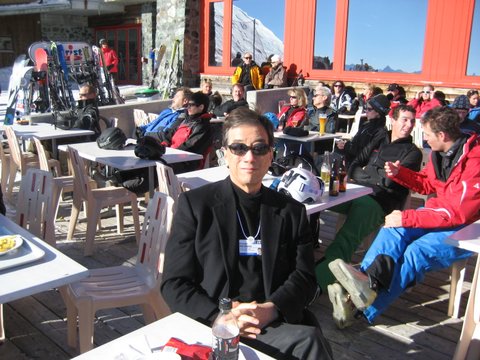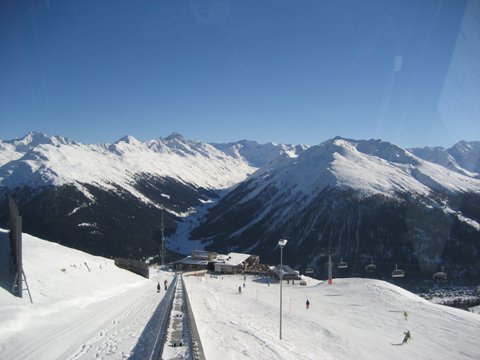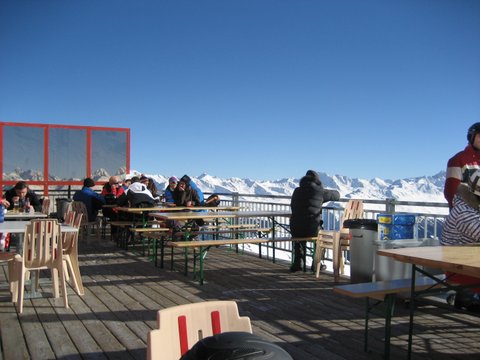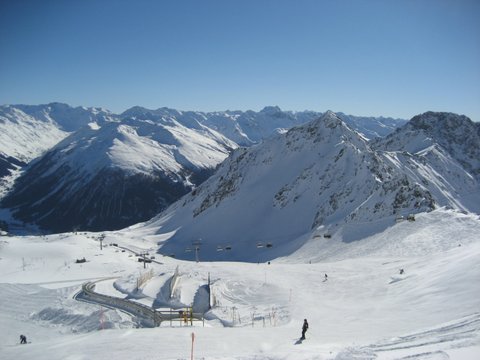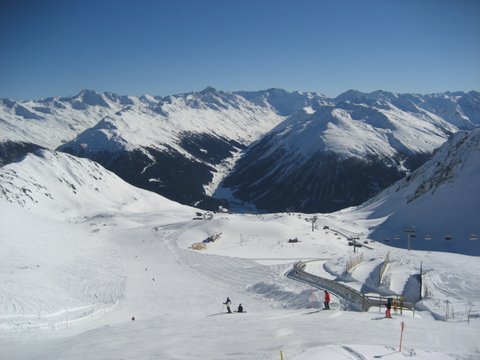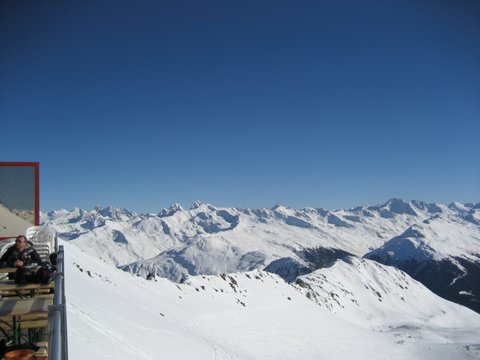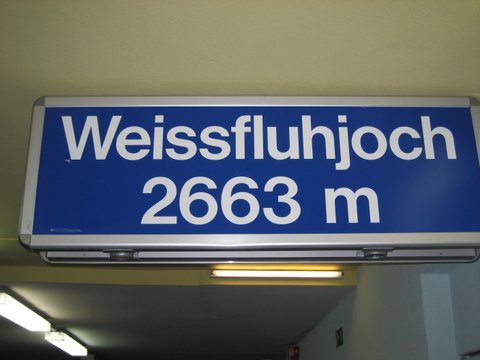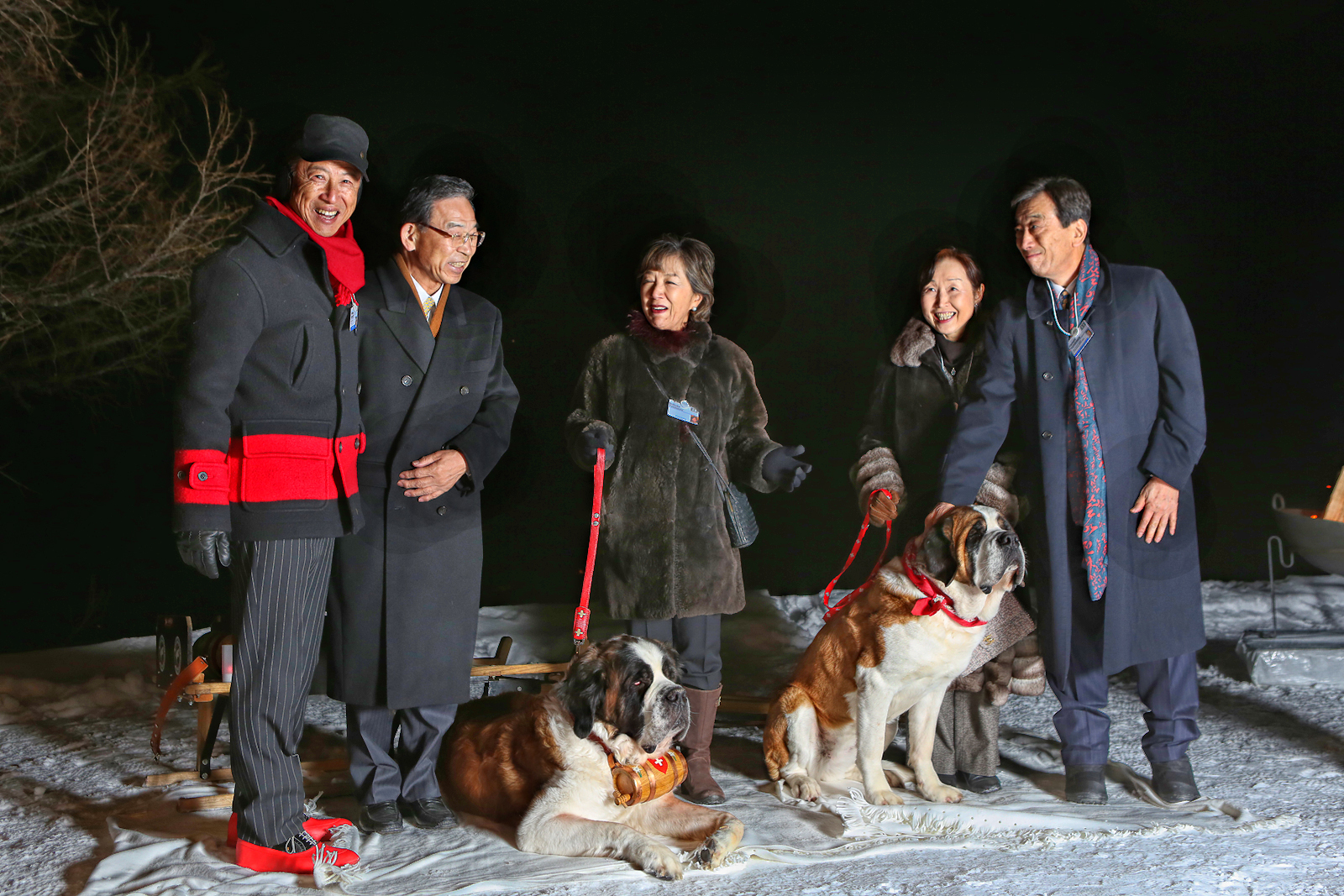Copyright by World Economic Forum.
swiss-image.ch/Photo Remy Steinegger.
Many business and government leaders from all over the world come to gather at the World Economic Forum Annual Meeting in Davos. There is a great advantage with so many people here at one time in this small village, as there are plenty of opportunities to make behind the scenes arrangements in politics and business. The interviews (1, in Japanese) by Ms. Iida of NHK were also possible because she was in Davos. Those whose work is conducted behind the cameras, like Ms. Iida, are also very busy. Aside from the usual work, many extra preparations are necessary before coming to and after arriving in Davos, such as setting up appointments, reserving places and times, and chasing and getting hold of people.
Even for business conferences, there is a rule that only one top person from each company can attend (even secretaries are not allowed), so there is a whole other set of meetings held outside of the conferences at hotels.
On the 25th (Friday), there was a breakfast meeting of around twenty people from Japan and China. As no politicians attended the meeting, we enjoyed a frank discussion. Afterwards, the Global Agenda Council was held in which the three chairs of Japan, China and South Korea (China was the representative) held a one hour private discussion.
In the afternoon, there was the usual conference between the leaders of the world’s chemical companies which I have been invited to. It allows people to listen in and study. The regulars from Japan were Mitsubishi Chemical, Sumitomo Chemical, and Teijin but many elements are involved and the topics are now broadening from chemistry to include biotech-sciences.
On the 26th, Saturday, there was a panel titled “The Japan Growth Context” (1), which was moderated by former British Ambassador to Japan Sir David Wright and was comprised of the following panelists: Minister Motegi of the Ministry of Economy, Trade and Industry (I heard that Minister Motegi was moving about the conference arena by himself afterwards), President Hasegawa of Takeda Pharmaceutical, Chairman Kobayashi of Mitsubishi Chemical, Mr. Heizo Takenaka, and myself. As NHK news reports, there are high expectations for the Abe Cabinet, but the question is what to do about economic growth. Around one hundred people were in the audience, of which about eighty percent were Japanese, and several good questions were raised. I spoke mainly of the significance of the Fukushima nuclear accident, the delay in the women empowerment in the Japanese society (WEForum’s 2012 report shows that Japan is ranked 102 out of 134 countries on the Gender Empowerment), and the insular mind-set of many Japanese people’s, though these are topics I always discuss.
Afterwards, I went to a private conference on US foreign policy, and later rode the cable car up the Weissfluhjoch in Parsenn, to enjoy the beautiful weather. Everyone was skiing. I rested there a little while and then returned back down to the conferences.
At night, I attended a soiree. We took a mountain tram to reach the luxury hotel, Schatzalp, where it was held. The hotel is the sanatorium in Thomas Mann’s book Magic Mountain.
Professor Takeuchi of Harvard Business School and his wife were with me; Professor M. Useem of the Wharton School at the University of Pennsylvania, who chaired my earlier panel (see my posting ‘Davos -1’) introduced me to many people and I had a very enjoyable evening.
The next day, I woke up early and took a bus to Zurich. The flight from Zurich delayed two hours before departure. I arrived in Narita at three in the afternoon the next day.

